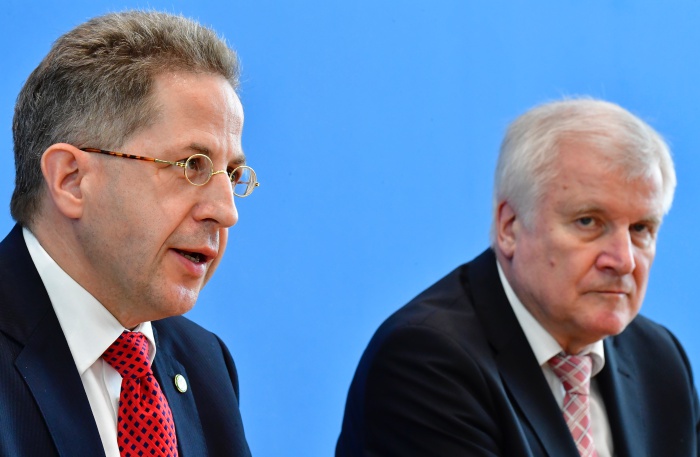The head of the German domestic intelligence agency, the Federal Office for the Protection of the Constitution (BfV), has confirmed that it is spying on a lobbying group close to Turkey’s ruling Justice and Development Party (AKP) in the country as an anti-sabotage measure, according to a report by German state broadcaster Deutsche Welle (DW) on Tuesday.
“The Union of European Turkish Democrats [UETD] is a nationalist group. We evaluate the UETD to be a group that is incompatible with the constitutional order, which is based on liberal democratic principles,” BfV head Hans Georg Maassen told journalists at a press conference unveiling his group’s 2017 report on Tuesday.
Maassen confirmed that his agency was tracking the UETD, which it called the “unofficial overseas organization of the Justice and Development Party.”
In May, the UETD changed its name to the Union of International Democrats (UID). Last year, Turkey was added for the first time to the report along with Russia, China and Iran as a country carrying out intelligence activities that concerned the BfV.
This year, the report included concerns that the Turkish government was collecting large amounts of information on Turkish opposition groups based in Germany.
The overall news was good as Interior Minister Horst Seehofer and BfV President Maassen presented their report on Tuesday for 2017, according to the DW report. Politically motivated crimes in Germany declined by 4.9 percent over 2016 from 41.549 to 39.505. Far-right extremist crimes also declined by an impressive 35 percent, although their numbers remain higher than in 2014, the year before the so-called migrant crisis.
Still, as was true of left-wing extremism, the number of people deemed potential committers of far-right extremist crimes rose slightly. For that reason, neither Seehofer nor Maassen was bragging about the results of the study.
Right-wing extremists, Seehofer cautioned, weren’t always easy to recognize and could be radicalized “in extremely short spans of time.” He added that the extreme right potential for violence hadn’t remained “high.” He said that largely because of protests against the G20 conference in Hamburg last July, left-wing extremist incidents had risen by an “alarming” 37 percent.
“Conditions like those in Hamburg should never be allowed to repeat themselves,” Seehofer said, referring to widely televised scenes of street violence in the northern German city.
The report also noted slight rises in the number of Islamists, particularly Salafists, whom Maassen characterized as a “continual high-level threat.” Some 700 “Gefährder,” people kept under constant surveillance because they represent an acute threat, are currently living in Germany. That, said Seehofer, was “more than ever before.”
(Turkish Minute with Stockholm Center for Freedom [SCF])

